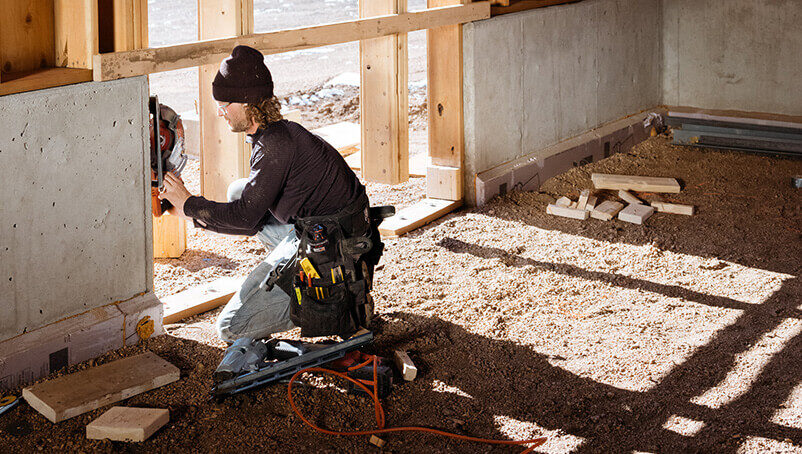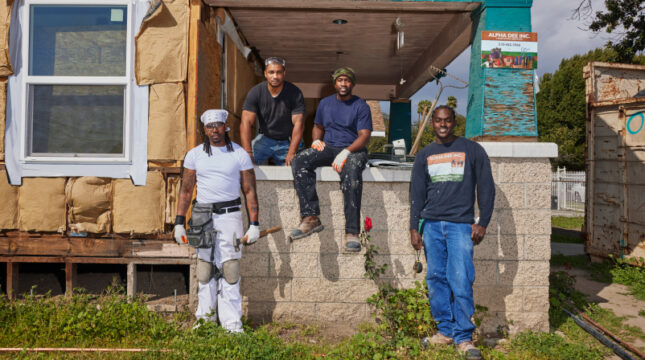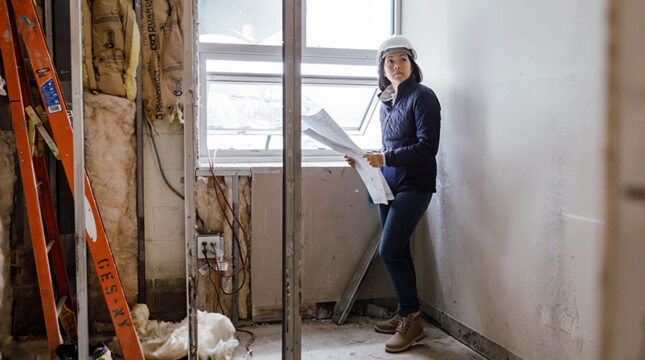Is an Arizona contractors license required?
You need a general contractor license in Arizona for any project worth more than $1,000 or requires a local building permit.
The rules are clear in Arizona: you need to be licensed if you want to bid or contract on projects that involve constructing, repairing or demolishing a building, according to the Arizona Registrar of Contractors (ROC).
Insurance requirements for an Arizona contractors license
Any contracting business can encounter unexpected issues. And insurance for contractors can help protect you and your business from a multitude of sticky situations. Some policies that could help shield your business include:
General Liability insurance
A general liability policy can help protect your business if a non-employee suffers an injury on a job site or if you accidentally damage someone else’s property.
Workers’ Compensation insurance
Workers’ comp insurance can help cover lost wages and medical bills if an employee gets hurt on the job or suffers a work-related illness. By law, all employers must provide workers’ compensation insurance in Arizona for their employees.
Commercial Auto insurance
If you use a vehicle for work and you or an employee is involved in an accident, commercial auto insurance can help cover medical expenses, property damage and other related costs.
How to get an Arizona contractor license
To get a general contractor license in Arizona, here’s what you need to apply for a license:
1. A qualifying party
The ROC will ask for a “qualifying party.” If you’re the general contractor applying for a license, you are the qualifying party.
2. Four years of experience as a contractor
At least four years of experience at the journeyman level is required for residential, commercial and dual licenses.
3. Pass the trade exams
Several different exams are required on topics such as business management and your trade. What you need and the requirements to pass each exam depend on which type of contractor you’re hoping to be licensed for. You must pass the license exams with a score of at least 70%.
4. A background check
As part of your application, you’ll need to submit to a contractor’s background check. To apply for your license you must include copies of the payment transaction receipt from your background check.
5. To form a legal entity
If you form a limited liability corporation (LLC), corporation, sole proprietorship or partnership you’ll also need to register with the Arizona Corporation Commission. Partnerships are required to register with the Arizona Secretary of State.
6. Submit proof of a license bond
Your bond amount depends on which Arizona contractor license classification you’re applying for. Bonds can range from $9,000 for residential contractors and $5,000 to $100,000 for commercial contractors.
7. Pay license fees
The fee also depends on your license classification, and they can range from $200 to over $1,000. Fee waivers are also available for some qualified applicants. More details can be found on the state licensing site.
8. Submit identification
Send in a copy of your government-issued identification, such as a driver’s license or a passport, with your application.
9. Send your application to the registrar
After completing your license application form, the last step in the application process is to submit it. To make sure your application is approved, be sure to include all relevant and up-to-date documentation, including:
- Your business ID number
- Your financial statement
- A background disclosure statement
- Documentation-related experience requirements
You’ll also need to fulfill the exam requirements.
Types of AZ ROC license contractor classifications
Arizona issues separate license classifications for commercial and residential work, as well as dual licenses that cover both commercial and residential.
Residential (B-)
This license enables you to bid on any residential construction project, including houses, townhouses, condos and apartment complexes of four units or less.
Commercial (B-1 / B-2)
The Arizona ROC views commercial contracting as anything besides residential. This can include restaurants, retail stores and large apartment complexes.
General Dual License Residential + Commercial (KB- 1)
For projects that fall into both categories, you can get a license allowing you to bid on all residential and commercial construction projects.
There are several additional classification categories, including:
A – Engineering contracting (commercial)
B – General commercial contracting and residential contracting
R – Speciality residential contracting
KA – General dual engineering contracting
KB – General dual license contracting
CR – Speciality dual license contracting
C – Specialty commercial contracting
How long does it take to get an AZ contractor license?
The Arizona ROC outlines the following timeframes to issue a contractor license.
20 calendar days for administrative completeness review
Within 20 days, the registrar will let you know if your application is complete.
40 calendar days for substantive review
The registrar will review your qualifications and grant, deny or list anything missing from your application.
Avoid delays with this general contractor license checklist
Want to be sure to avoid delays? Make sure your application has all the requirements before you send it in:
- Examination results
- Background checks
- Papers for legal entity
- Bond
- Fees
- Government-issued identification
- Signatures
And be sure to include supporting documents, such as:
- Prior license disclosure forms
- License cancellation forms
- Felony disclosure forms
- Unlicensed Activity Disclosure Forms
- Solar Warranty
Including all required documentation will make it much more likely to fast-track your Arizona general contractor license application.
How to renew an Arizona contractors license
You’ll need to renew your license every two years in Arizona. The cost for a renewal is usually the same as the initial license fee.
Licensed contractors with general residential, specialty residential, general dual or specialty dual classifications must also pay a $270 fee for “recovery fund assessment.”
How do you renew your general contractor license in Arizona? Start the process online at the Arizona ROC.
Arizona contractors license reciprocity
Arizona passed a law regarding universal licensing recognition. It makes it easier for people already licensed in another state to get licensed at the same level in Arizona.
Under the law, Arizona’s licensing boards will recognize out-of-state occupational licenses for people who:
- Have been licensed in their profession for at least one year
- Are in good standing in all states where they are licensed
- Pay applicable Arizona fees
- Meet all residency, testing and background check requirements
If you’re licensed in another state but move to Arizona, you still need to apply for a license through the appropriate Arizona licensing board before working.
The good news? You’re not required to duplicate training and other requirements, so Arizona’s policies on general contractor license reciprocity means you can begin work more quickly.
Bond requirements for an AZ contractors license
In Arizona, there are bond requirements for a contractor’s license. If you’re applying for a license, you need to file a Contractor’s Bond in the amount required for your license classification and your estimated gross volume of work each year.
The bond can be in the form of a surety bond or a cash bond, or you could provide a bond in the form of cash or a certificate of deposit from any bank that operates in Arizona.





